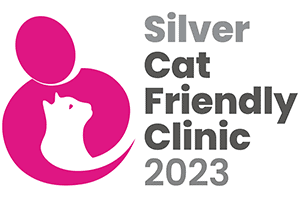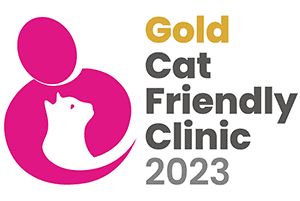As we get closer to COVID-19 related restrictions being slowly relaxed you’ll be looking forward to getting out and about more with your new puppy. Or, perhaps you’re thinking of buying a new puppy as life returns back to some kind of normal? Whatever your circumstances, we’ve put together a few tips for all new puppy parents.
First things first – vaccinations
It’s essential for the health of your puppy that they have had their vaccinations before embarking on any outdoor adventures. Initial vaccinations are usually given at 2-4 months of age, with a second vaccination 2-4 weeks later. Taking an unvaccinated puppy outside puts them at risk of canine diseases such as parvovirus and distemper which can, in some cases, be fatal. It’s better to wait until you can be sure of your puppy’s safety and wellbeing. Get in touch with us to book your puppy’s vaccination course – we’ll be happy to advise on timings and answer any questions you may have.
You may be interested in joining our Pet Club – as a member you’ll get vaccinations, monthly flea, tick and worm treatments and other benefits and discounts included for one monthly fee.
Normal puppy development
Puppies are the most receptive to new experiences between 3 and 18 weeks of age, so there’s plenty of time for you to help them develop before you even leave the house. During this time their brains effectively process any new sounds, smells and situations they encounter. The memories of these experiences, good or bad, are stored away for future reference. As puppies mature, they rely on these memories to help them ‘risk-assess’ new situations so they can react accordingly. Adult dogs who lack a memory bank of positive experiences, are more likely to react inappropriately in a new situation by showing nervous or aggressive behaviour.
Separation
In the early days of puppy ownership, you’ll probably spend a lot of time with each other as you get to know them and watch their personality emerge. It is hard sometimes to separate but it is important to teach your new puppy how to be on their own. Separation anxiety can be a difficult problem if allowed to develop. To prevent issues developing as your puppy grows, we recommend the following:
- Make sure your puppy has a safe space such as a crate or a bed
- Spend increasingly longer periods of time in different rooms so your puppy learns to feel safe alone and knows you’ll always return
- Encourage independence – as your puppy gains in confidence, allow them to explore the garden alone
- Provide interactive, interesting toys for your puppy to play with while you’re apart.
Noise
- Gradually introduce your puppy to different noises around the house so they begin to accept, and not be scared of, a range of sounds. Make the experience positive for your puppy by rewarding them with a small treat each time you introduce a new noise. You could try: dropping items, banging doors, singing and shouting.
- Sitting with your puppy near an open window or door is a good way to introduce them to traffic noise.
- If your puppy is happy to be carried, you could both enjoy short walks together (while observing social distancing measures!)
Handling and grooming
It’s a great idea to help your puppy get used to being handled at a young age. Introduce a gentle grooming brush and spend a few minutes each day examining your puppy’s mouth, ears and paws.
Play
Puppies learn a lot about social interactions through play. Short periods of energetic play are a good way for puppies to learn the basics such as ‘fetch’ and ‘hide and seek’. You could introduce your puppy to walking on a lead and practise in the garden in preparation for when you can venture further afield.
Socialising with other puppies and dogs
An important part of development for your new puppy is socialising with other dogs. Where possible, and in line with government guidelines, try to meet up with friends or family who have canine companions so your puppy will get to know them and how they behave. This will be essential for the future, when you encounter other dogs on walks and public outings.
Children
If your puppy lives with children, this is a great opportunity for everyone to be involved in your pup’s socialisation and training. It’s helpful to teach children how to recognise when your puppy is tired. Tired puppies can become grumpy; they need a safe, quiet, space for uninterrupted rest.
Dress-up
When you’re out and about with your vaccinated puppy, they will encounter many different people with different appearances. It’s a good idea to try to emulate this during the early days whilst you’re at home. Try out hats, sunglasses and veils; allowing your puppy to approach you in their own time and rewarding them when they do.
Cars
If you plan to take your puppy out with you in a vehicle, it’s a good idea to introduce safe travel to them early on. Get them used to a travel crate in the boot, or a doggy-seatbelt, even if you don’t actually drive anywhere. Gradually spend longer periods of time with your puppy in the car and give plenty of praise and treats each time. Feeding meals in the car is a good way for your puppy to develop a positive association with your car. You could start the engine too to introduce your puppy to the noise and vibration of a car.
If you’d like further advice on your puppy’s development, including the use of crates, diet, insurance or anything else, please call us. Our vets and nurses are happy to discuss any concerns you have. We’re very excited to meet your new additions and watch them grow into happy, healthy dogs.




